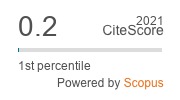The Theory of Executive Compensation and Empirical Compensation Research Before and after in Pandemic Situation
Keywords:
Executive compensation theory, empirical compensation, earnings management.Abstract
This paper aims to provide an easy-to-use executive compensation model and explained challenges and problems with empirical research. This study examines the theoretical and empirical literature on executive compensation. The research methodology was carried out using descriptive analysis related to data and literature review without conducting data testing. The explanation that can be put forward from the findings of this study is that first, there is an impression that institutional owners as the majority shareholder ask for Executive Compensation placed in the management ranks or even those who become managers to minimize earnings engineering, because if the institutional owner as the majority shareholder asks the manager to do engineering profits that benefit him, the minority shareholders and the stock market will discount the company's stock price which will actually harm the majority shareholders themselves. So Executive Compensation is synonymous with low earnings management. Second, the dominance of institutional owners causes managers to be unable to act opportunistically which tends to benefit themselves but may harm the owners. So that managers cannot freely manipulate the profit figures generated by the company. Third, institutional investors are far more forward-looking than individual investors who only focus on current profits.



